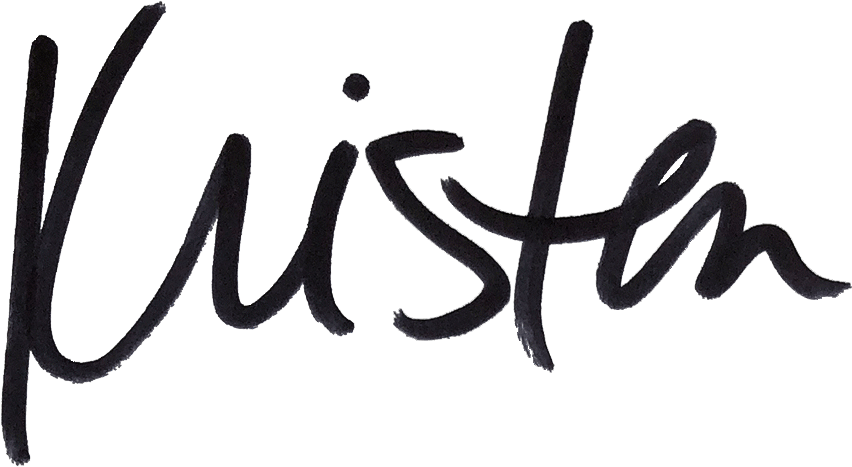Before we hop into the big work of finding, refining, and using your voice, let’s review the three threads. This is, so far as I know, an original concept of mine, which is why you might be like, “WTF are you talking about I’ve never heard of the three threads before…” Right. I know. Thus, an explanation. (Also, they’re explored in waaay more detail in podcast 105: how to get to anywhere you want to go.)
After finding, buying, and doing a vast number of 6-or-7-step programs to help grow my business, find my path, and/or hone in on my truest work, I got really freaking frustrated. I was always off-base or outside the formula given by step number three of a seven-step program. DUDE. Could I please not pay thousands of dollars to use less than forty percent of any given class? Please?
Turns out, nope I couldn’t. So over the course of years, I made my own strategy for navigating my life. It doesn’t have steps, and so you can’t lose the plot by missing a piece or two. I call it the three threads.
Keeping hold of the three threads will help you to be certain you’re going the ‘right’ way on any given day.
Thread one: the physical world. This thread keeps you connected to your body and to your well-being. If you’re tending to the physical world thread, you’ll get enough sleep, hydrate regularly, and give yourself the gift of nutrition. You’ll consume nourishing foods and avoid allergens or foods that upset your body. Bonus physical world points are awarded for regular movement and for getting plenty of sex. This thread forms the foundation for the others, as moving toward becoming a fully alive, spiritually enlightened genius isn’t possible if you give up on things like eating, sleeping, and consuming water.
Beyond the physical world, we move to the interior continent thread. This is the thread in which you feel connected with what’s going on inside of your self. The interior continent is made up of the parts that no one else can see, know, feel, or explore on your behalf: the parts of the spectrum of human experience that live within you and you alone. Unless the interior continent’s landscape is expressed in some way, there’s no way for me to know which feelings, sensations, thoughts, or experiences are happening inside of your body, mind, and spirit at any given time. When you stay closely connected to your interior continent, you get better at both exploring and articulating what you’re experiencing on any given day. This gives birth to art, to writing, to good conversation, to boundaries, and to easy decision-making. The more connected you are, the easier it is to say “yes” or “no” to people, projects, experiences, ideas, and concepts as they present themselves.
The final thread is your truest work. If you can keep hold of the physical world and your interior continent threads, you’ll most likely be led to your truest work.
Which gifts have you been given, and how can you return them to the world in some form? Which work do you do — whether it’s paid or not — that helps you feel as if you’re returning to yourself or to your soul? Which activities, movements, gestures, actions, or tasks feel easy as breathing?
Those are clues that point you in the direction of your truest work. (Your truest work may be but is not necessarily the work you’ll be paid to do. Case en pointe: parenting.)
When you are connected with your truest work, you’ll feel fulfilled at a deep level, even if you’re frustrated by the pace of the work, the funding of the work, or the physical world circumstances of the work.
That said! Finding, refining, and using your voice lands squarely in the interior continent department.
To express and articulate what you’ve got within you, you’ll have to, as Jean Houston says, “grow a garden in your soul.”
Soul Garden Principle #1. There will be weeds and neglect, no matter what.
If we view your voice not as merely a means of expression but as a living entity, like a garden, it’s easier to accept that there will be stuff you don’t particularly want in that space. Nature abhors a vacuum, so you won’t come to your interiors and find a pristine glass enclosure waiting for your input. You’ll find a landscape laden with debris, shadows, trash, all the stuff you’d rather avoid, and a few plants growing despite their circumstances. The work of a lifetime is making space in the garden for the good stuff, while moving the trash and decaying bits and flotsam and jetsam out of this space.
It’s important to note that weeds are not a cause for guilt! Weeds can spring up overnight in even a tip-top 100% manicured royal garden that’s been tended for centuries.
Again: weeds do not equal guilt. The first part of building a garden in your soul is acknowledging that a garden of some kind already exists there, and you might not like it right now.
Weeds include, but are certainly not limited to:
– obligations you loathe
– telling yourself that you’re ‘fine’ and should ‘just get over it,’ whatever it is
– should’s (you should do this, or that, or like that person, or take up that cause)
– giant stretches of time you ‘have to’ dedicate to X (but don’t want to)
– wounds you refuse to acknowledge (i.e. your Mom died tragically a year ago but NBD, nothing to talk about, move along)
– recurring patterns that screw with your life, like: overeating, not charging money for your work, spending everything you bring into your business without paying yourself first, overusing alcohol to avoid feeling things, not doing the one thing daily that you’ve decided is the most important thing you should do daily, or not getting help with a physical ailment, mental illness, or ongoing condition.
Weeds take time, energy, and possibly money from your everyday life. They don’t magically turn into vegetables or herbs or flowers or gorgeous vegetation, no matter how long they stick around, so they’ve gotta go.
Notice the weeds, one at a time.
Doesn’t mean they’ll actually be eliminated or go away. Just means you can only change what you acknowledge. (i.e. ‘YUP, that ragweed infestation is fucking with my life and making my allergies go crazy and sapping my will to live,’ versus ‘Ragweed infestation? WHAT ragweed infestation?’) Even the broken bits and weeds have value, and that value may not become clear for years and years and years and years and…you get the idea. (Mostly, the value of the weeds won’t become clear until they’ve been cleared.)
Weeding your garden is about making space for more good stuff to grow. So, you don’t like what you find? That pattern of overeating or procrastinating or those memories you’ve never processed? You’ll have to pick each one up and ask it what it wants to teach you before it goes away.
Weeding your garden is another term for becoming, and becoming is often painful.
It’s easier to give up on your self than to wade back into the craziness and clear a tiny patch of soil. It’s easier to blame other people for what you find than to take responsibility for, if not putting the stuff there, than failing to clear it out.
What do you want to clear from your garden at this moment? Not 83 things, not 22 things, just one thing.
Which obligation, pattern, worry, memory, or pile of shit has got to go?
Start there. Write it down. And that’s your focus for the next little while, until you’ve cleared that space.
Articulating the desire for that particular thing, pattern, person, relationship, responsibility, or memory to leave your life is the first part of finding your voice.
Voices always begin with desire and wanting. Keep listening below. ?
P.S. Important for finding your voice: how to not give a fuck. More on finding your voice here. And there’s also a poem about it if you want to go further.




